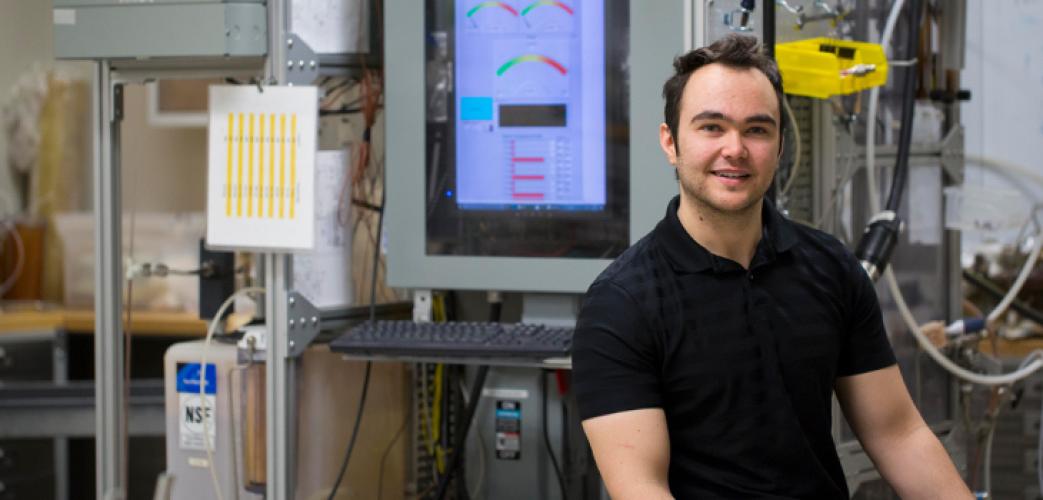
Alumnus Chad Able leads water sustainability efforts for the U.S. Department of Energy

Even in his graduate studies, getting hands-on experience was critical for Chad Able as he pursued and completed his Ph.D. in chemical engineering. Today, Able works as a senior engineer for KeyLogic Systems, a contractor for the U.S. Department of Energy. Each day, he takes advantage of the network and skills he developed at Ohio University to excel as a researcher in his career.
At OHIO, Able worked alongside Jason Trembly, Russ professor of mechanical engineering, and Sumit Sharma, associate professor of chemical and biomolecular engineering, with the Institute for Sustainable Energy and the Environment (ISEE). The development of remediation processes to improve water and air quality is one of the primary goals of the ISEE, so Able specifically worked in wastewater treatment throughout his graduate studies prior to his career in the industry.
Working with these faculty members allowed Able to challenge himself in the field, improving his skills in academic writing, building industry connections, and developing modeling capabilities. Able chose Ohio University because he wanted to work alongside faculty with industrial backgrounds — experience outside the laboratory — so he could hone these skills.
“Dr. Trembly and I literally drove out to a frack well to get water [to test.] That’s the real hands-on part,” Able said.
His mentors allowed him to get his feet wet, both literally and figuratively, in a variety of scenarios, which prepared him for the multifaceted career he leads today. In fact, he discovered his current role with KeyLogic while building industry connections alongside Trembly at the American Institute of Chemical Engineers (AIChE) conference.
At KeyLogic, an average day for Able revolves around the evaluation and treatment of wastewater. KeyLogic works with key partners to identify and implement water and environmental sustainability efforts. In his role, Able gathers and evaluates the statistics from the water of focus. Once he collects this data, he reaches out to vendors who sell treatment technologies. From there, he compiles all the information to present and make recommendations for any given site.
“[Water remediation] is always going to be a point of concern for any administration who produces water or uses liquid waste. It will always demand scientists and engineers,” Able said.
Though his standard day involves testing and evaluating water samples, a project that Able has been working on this year is assessing the leeching of coal landfills. This project has required Able to assess the state of the site and then makes suggestions about how to move forward with those sites.
“This project will serve as a launch point for efforts in mineral recovery and working in water-constrained areas. It will lead the way for future projects,” Able added.
From his experience in graduate school to his current role as a senior engineer, Able has always embraced opportunities to engage in hands-on work to inform his research. While his desire to do hands-on work was always a constant, he was open to a variety of career possibilities beyond that.
“It is just important to keep an open mind about the direction your career would take,” Able said.
